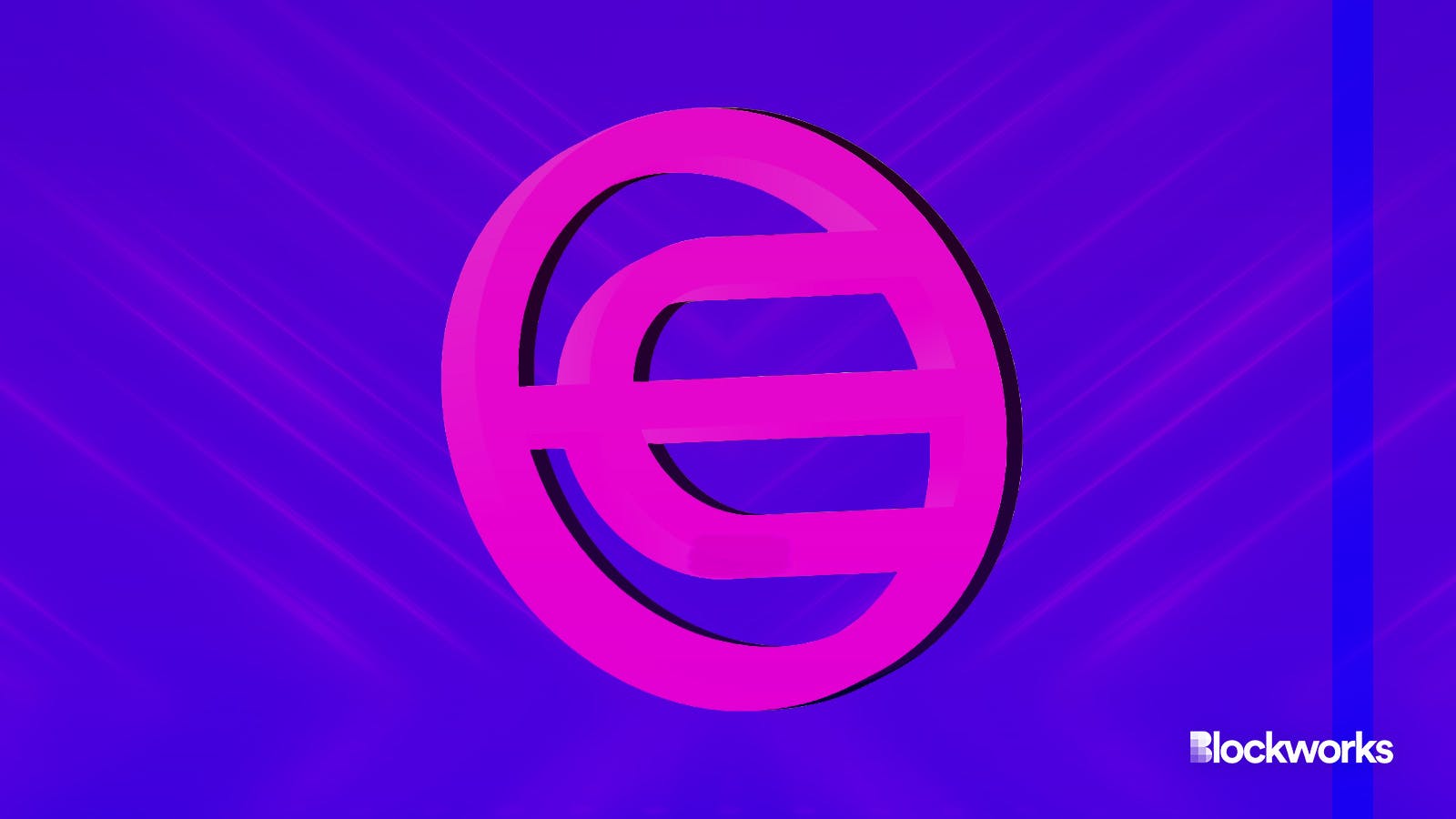Worldcoin teases ‘World Chain’ layer-2
Worldcoin-related activity currently makes up 43% of activity on Optimism, a Dune dashboard suggests

PKartstudio/Shutterstock and Adobe modified by Blockworks
The iris-scanning identification platform Worldcoin plans to launch a layer-2 later this summer, the project announced Wednesday morning.
Currently, Worldcoin runs on the popular Ethereum rollup Optimism. Worldcoin’s layer-2, named World Chain, will be built using Optimism’s software set, the OP Stack. World Chain will use its proof of personhood technology alongside financial incentives to try making it harder for bots to turn a profit.
Worldcoin is a Sam Altman-backed startup using biometric data to, in the project’s telling, distribute a universal currency and verify humanness in the age of AI. Worldcoin launched over the summer and just recently surpassed ten million users on its World App wallet.
Worldcoin says with the growing usage, its current blockchain home is getting a bit cramped. Tiago Sada, the head of product, engineering and design at Worldcoin developer Tools For Humanity, told Blockworks that approximately 43% of all activity on Optimism is currently related to Worldcoin.
In an interview with Blockworks, Optimism Chief Growth Officer Ryan Wyatt said Worldcoin migrating from Optimism to the OP stack “builds on the momentum” the software has seen with partners also including Base and ZORA. Projects built with the OP Stack share 2.5% of sequencer revenue with the Optimism Foundation, Wyatt added.
Read more: Two-thirds of EVM smart contract deployments in 2024 are from Optimism: Report
There are many layer-2s at this point, but Worldcoin thinks it can distinguish itself by prioritizing human transactions over bots. Bots and World Chain “power users” will pay slightly more in gas fees to subsidize gas for casual users, most of whom only transact on-chain a couple of times per month, Sada said.
Trading bots are popular in crypto for things like executing trades faster or carrying out automated strategies. A slew of DEX bots tracked by a Dune dashboard did $131 million in daily volume over the past seven days.
Bots can make blockchains less workable for human users though. Bot-related spam is partially culpable for Solana’s recent congestion woes, for example.
Read more: Solana’s cheap fees are turning out to be a curse — for now
The Worldcoin Foundation, a non-profit supporting Worldcoin’s development, will collect the higher gas fees from bots and redistribute them to humans, Sada noted.
“It’s not even a fair competition,” Sada said of bots trading against humans. “All blockspace goes to bots and then just the [leftovers] can go to humans, and so we want to flip that.”
On World Chain, humans will not only pay less in gas fees but will also be “prioritized for faster confirmation times,” according to a press release.
Worldcoin hopes its bot disincentivization will drive more organic usage on its layer-2. Iris-scanned World App users get WLD airdropped to them every two weeks — and WLD will be used as a gas token on World Chain. Worldcoin’s core team will focus on developing an ecosystem of real-world apps focused around things like payments, stablecoins and identity, Sada said.
Still, Worldcoin’s anti-bot focus could strip the layer-2 of a large driver of trading volume on blockchains.
Bots can create a revenue stream that Worldcoin might lose, Wyatt conceded, but he noted: “If you think about Worldcoin prioritizing humans and actually having ten million users, it’s not crazy to see them get to 100 million, 300 million users in the future.”
“Maybe there’s short term opportunities that they miss out on revenue, but you’ve got to play the long ball here and they are well positioned to do so,” Wyatt said.
WLD tokens currently trade at around $4.94, per CoinGecko. The project’s idea of a universal basic income may be seeing some promising early returns: One user recently used his WLD to buy himself a goat.
But it hasn’t been all sunshine and farm animals in Worldcoin land. The platform continues to face regulatory scrutiny over its data collection methods. Worldcoin is battling a temporary block on its data collection in Spain. Portugal similarly issued a temporary halt on Worldcoin data collection late last month. Regulators in France, Germany, and Kenya have also expressed concerns about Worldcoin.
Get the news in your inbox. Explore Blockworks newsletters:
- The Breakdown: Decoding crypto and the markets. Daily.
- 0xResearch: Alpha in your inbox. Think like an analyst.






